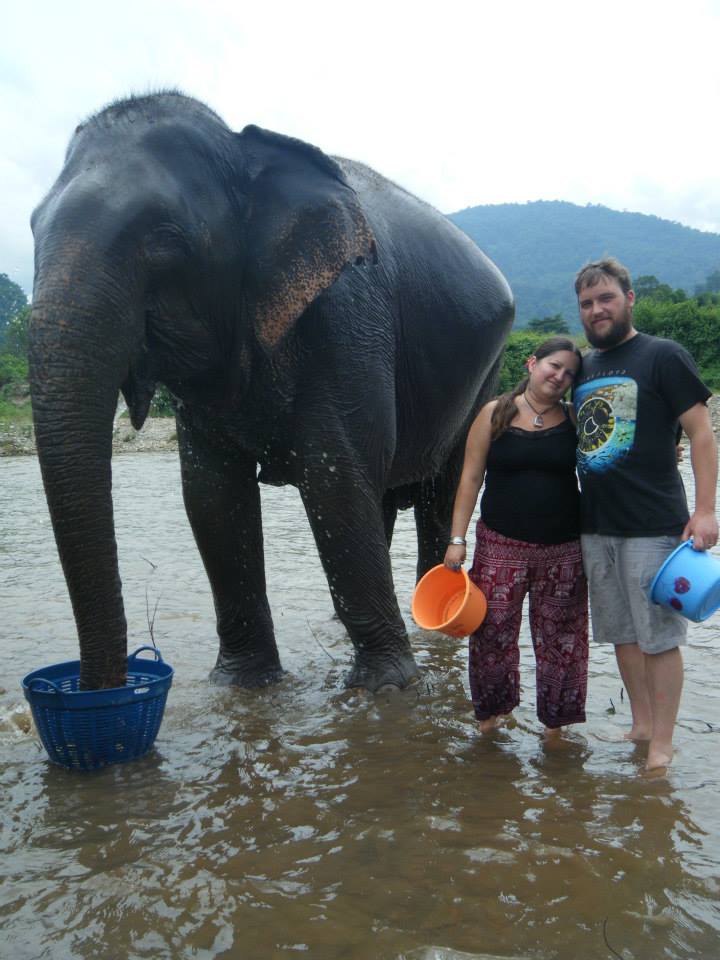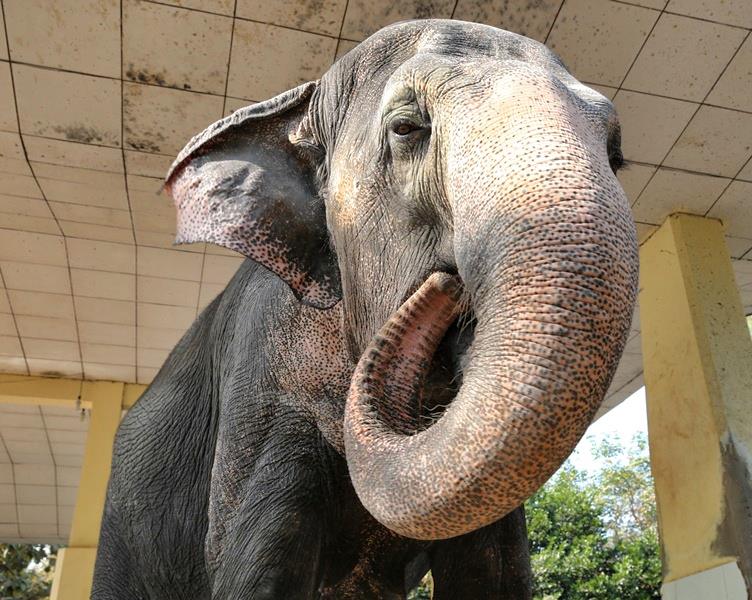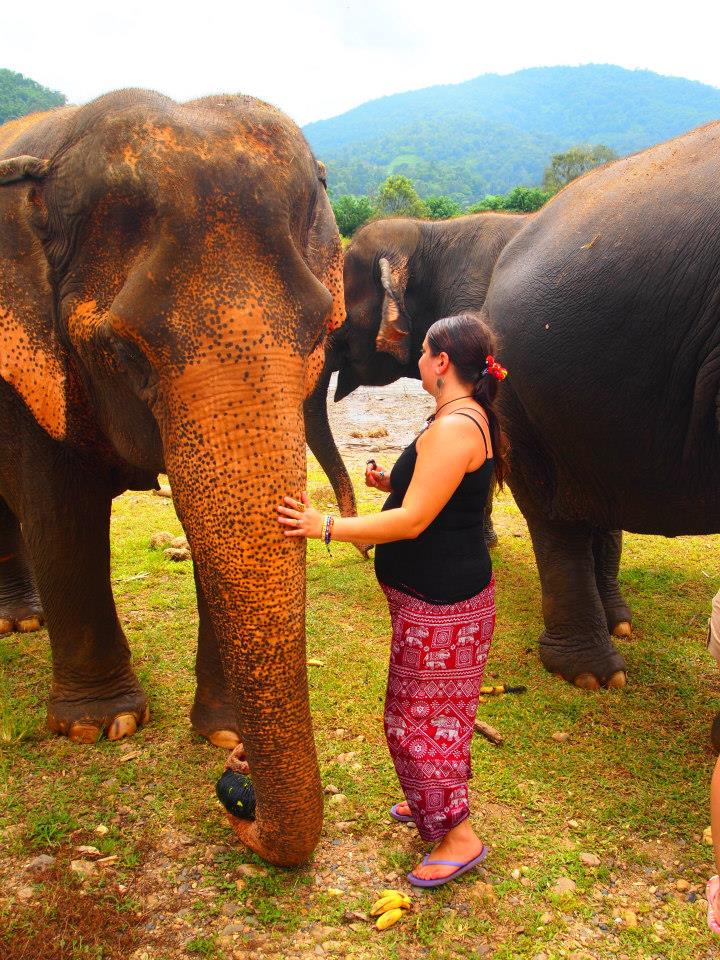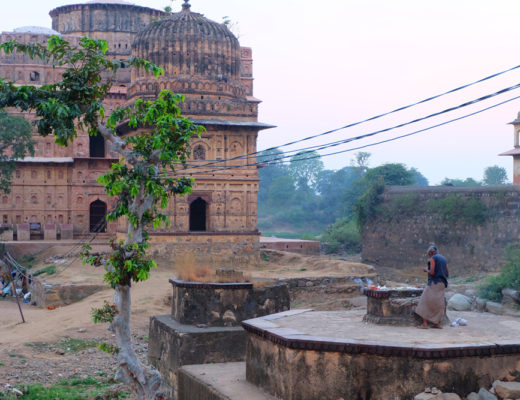Tiffany Parker approached me awhile back after reading some of my articles on my blog about visiting the elephant sanctuary in Thailand, The Elephant Nature Park and some of my articles I’ve written to help educate tourists on the inhumane practices and treatment of elephants in Asia. Tiffany was planning a research and education trip that would help bridge the gap between hill tribes and the mistreatment of their elephants.
Tiffany will be traveling to Cambodia, Thailand and Myanmar this fall and with the goal to educate more tourists around what really goes on in these places with elephants, as well as the humane places to safely visit these majestic animals, I’ll be following along on her journey. Throughout the next few months, expect a few interviews with Tiffany on how her travels and her research trip are going. Follow along, but in the meantime, here’s a bit more information about Tiffany and her trip.
Tell me about yourself and your background.
My name is Tiffany Parker and I live in Pittsburgh, Pennsylvania. I have a wonderful husband who is also my best friend, four cats and a turtle. I went to school for Anthropology and Creative Writing, left school and then after a few years break, I returned. I love to travel, write, and hike, go camping and am always ready for new experiences.

Tell me about this project.
My work is on the ethical and cultural awareness between hill tribes and the elephants, to help pave the way for a future in which elephants are not ridden, poached, overworked or abused. With ethical tourism and education, the people of the hill tribes will be able to sustain not only a deeper connection with the elephants, but also their bonds with them.
My project consists of researching and volunteering with various organizations that work with and support the hill tribes of Southeast Asia. These organizations provide the opportunities for tourists to come and interact with the elephants and learn the customs and culture of the hill tribe people. The money then goes to the people, and they are able to sustain their livelihood and care for the elephants. These opportunities keep elephants off chains, streets and being forced to give rides.
Why is this project so important to you?
September 2014 my husband and I traveled to Thailand for two weeks to celebrate our anniversary. Two of those days were spent with the elephants, at two different locations. The contrast from one to the other was unnerving, the conditions, living quarters and look of the elephants was so different. I left both crying, one because of the chains the elephants were in, and the other tears of happiness because they were free.
I decided to learn more about the people, who are known as the “Elephant Whisperers”. They have always cared for the elephants and to being a mahout was actually an honor and was passed down from generation to generation.
Sadly, as access to the modern world becomes more enticing, fewer people are becoming mahouts and those that are feel the pressures of using the elephants for tourism in order to support their families.
What do you hope to accomplish with this project?
I hope to raise awareness and light on the elephants and the people who love them. To be able to tell their stories and learn more about the other side ethical tourism that many generally do not see.

Tell me a bit about the work you will doing on the ground in Southeast Asia.
While I am in Asia I will be volunteering at six different locations in Thailand and Cambodia. They have in common the emphasis of no elephant riding, learning about the culture of the hill tribe people and sustaining an income for the people so the elephants do not have to work.
From Cambodia I will be traveling to Myanmar where I will visit Mo Mo. She is a sixty-two year old elephant that has been living at the Yangon Zoo since she was three.
I learned about Mo Mo last year on my birthday. While I was reading birthday greetings on Facebook, I saw that someone else was also celebrating her birthday.
Since then I have been committed to helping Mo Mo retire to a sanctuary, although sadly, the zoo does not want to part with her.

Tell me a bit about the issue behind the inhumane treatments of elephants in Asia for those that aren’t aware.
Asia has a very conflicting relationship with the elephants. They worship Ganesh (the elephant God) and statues and pictures adorn the streets and homes.
Tourism has greatly enhanced elephant riding, the dream of sitting on top of an elephant shines deep in the eye of thousands of tourists a year. But unfortunately they do not know the truths behind the rides, tricks and painting that goes on.
These are the hidden secrets:
Baby elephants are taken away from their mothers and put through the phajaan, spirit crushing. The babies are beaten, starved, and poked until they fight no more, then they are trained.
Elephants are not domesticated animals, they are wild and every elephant that comes to the sanctuaries and are rescued endured this horrific practice.
Editors Note: Read my article on the deal behind riding elephants here.





No Comments